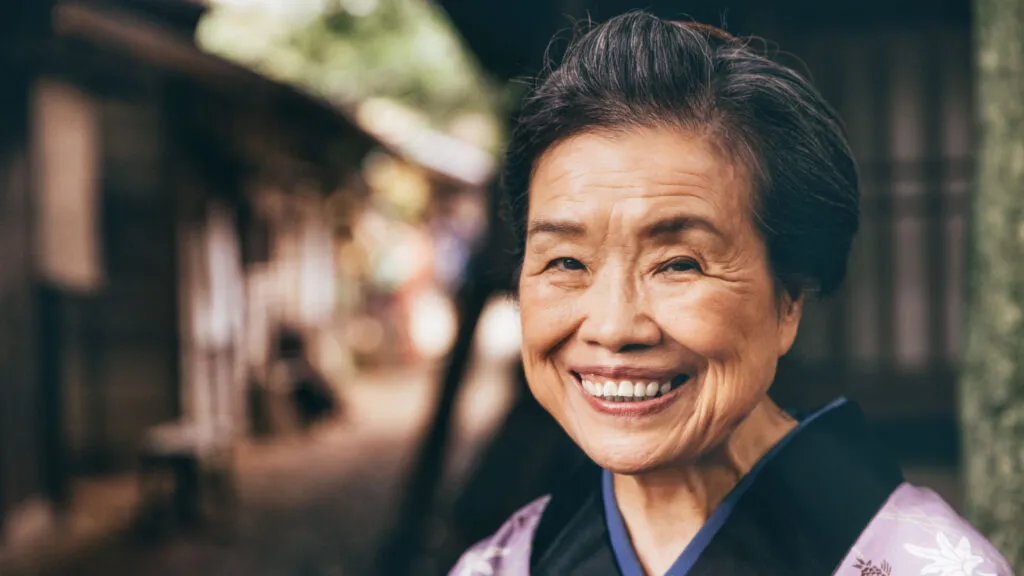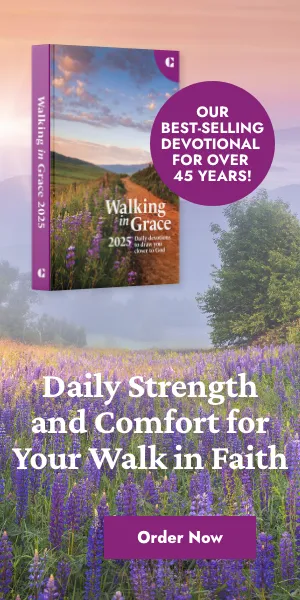National Geographic explorer Dan Buettner wants to help add years to your life.
The New York Times best-selling author, who has spent the past 15 years investigating mysteries around the globe, has studied the earth’s “Blue Zones”— a term he coined to describe areas in the world where the common life expectancy is between a healthy 90 and 100 years old—and is sharing what he’s learned from the people living long, healthy lives.
“Only about 20% of how long you live is dictated by genes,” Buettner tells Guideposts.org. “The other 80% is other factors, and if you can identify people who have the outcome that the rest of us want, i.e. living longer, you can reverse engineer what they do to learn lessons for the rest of us to follow.”
Buettner first became interested in Blue Zones in 2001 when he read a World Heath Organization report that found that people in Okinawa, Japan had the longest healthy life expectancy in the world—meaning people there live longer with fewer illnesses like heart disease, dementia, and high cholesterol that usually appear later in life.
“I thought, ‘A-ha! This is a good mystery,’” Buettner says. “I was so personally riveted by it. Here was a true intersection of exploration, and I would say self-help. This mystery could actually help people improve their lives.”
Buettner spent time networking with top scientists, pouring over census data, and learning about culture and customs from the locals in Japan. He came back to National Geographic with a proposal to explore Earth’s Blue Zones. Armed with the go ahead from National Geographic and a grant from the National Institutes on Aging, Buettner spent the next two years traveling the world, finding more Blue Zones in places like Sardinia, Italy; Nicoya, Costa Rica; Ikaria, Greece; and Loma Linda, California.
Buettner found that though these places were separated by thousands of miles and had vastly different geographies, cultures, and social structures, they all shared some commonalities, the first being their diets.
Buettner explains that if you want to know what a centenarian ate to live to 100, you’d have to know what they were eating throughout their life. He sourced 155 dietary surveys done by governments and universities in each Blue Zone over the past century to figure that out.
“They’re eating mostly plant based foods,” Buettner says.
Along with limiting the consumption of meat to five times a month (at most) Buettner says each Blue Zone diet shares other similarities.
“The four pillars of longevity diets everywhere are whole grains, greens, nuts, and beans,” Buettner says. He also thinks that most people struggle to eat healthy because “healthy” is such a hard-to-define word.
“I think most people are misguided, or just plain wrong [with what] they think of in their definition of a healthy diet,” Buettner says. “For example, people think Powerbars and granola and juice and lean meat are healthy; they’re not—at least when you look at the meta-analysis of what people who live a long time eat. So, telling people to eat a healthy diet is like telling a 10 year old to behave. The definition of good behavior is going to vary widely.”
But if you’re struggling with sticking to a plant-based diet, there are other ways you can extend your years.
“Diets aren’t going to work, exercise programs, they never work for more than a couple years,” Buettner says. “What does seem to work is curating a group of friends—and in Okinawa they have a great word for it, it’s called moai—who have healthy behaviors, because they’re measurably contagious.”
The logic is pretty straight forward. If your friends eat healthy, you’re more likely to eat healthy when you’re around them. If your friends enjoy hiking or playing tennis, you’ll probably participate in those activities as well.
“One of the most powerful things you can do is curate a group of four or five friends who have healthy behaviors to begin with,” Buettner says.
He’s also learned that looking inward helps to increase longevity.
“Having a strong sense of purpose is really important,” he claims. “In Blue Zones, we see a vocabulary for purpose, words like ikigai [which means a ‘sense of being’ in Japanese] and plan de vida [which means ‘life plan’ in Spanish]. Waking up in the morning and having a pretty clear idea of how you can use your strength every day and how you can contribute is probably worth about seven years of life expectancy.”
Buettner is taking what he’s learned from these Blue Zones—their diets, their way of life, how they value their senior citizens, their faith—and trying to implement them in places in America.
His nonprofit has already identified places like Fort Worth, Texas; Naples, Florida, and Albert Lea, Minnesota as potential Blue Zones. Buettner and his team of nutritionists, scientists, and volunteers reach out to communities who express interest in bettering their health, first working with the local government and city leaders to discuss implementing policies that make it easier to live a Blue Zone life. They get laws passed that help lower the cost of fresh fruits and vegetables and limit advertising of junk food to impoverished areas. They also work with city planners on changing infrastructure, building better sidewalks, maintaining parks, etc to make areas more foot traffic friendly. Then they reach out to the community at large, going door to door to educate people about healthy eating habits and the benefits of exercise. They recruit community members to sign a pledge committing themselves to improving their health, they hold events to create a sense of togetherness amongst community members, and offer ways individuals can follow the Blue Zone model. By adapting the diets, physical activity levels, and social patterns of Blue Zone communities around the world, Buettner and his team are able to help residents of these potential Blue Zone communities get on the path to living longer and avoiding common health problems caused by a sedentary lifestyle and poor eating habits. He says residents there have seen a life expectancy jump of about 3.2 years and their health care costs go down by 40%.
“It just takes time, and focus, and a comprehensive effort,” Buettner says, explaining that his team reaches out first to cities that show a commitment to changing their way of life. That involves implementing policies that help make living healthy easier on citizens—policies that bring down the cost of fresh fruit and veggies, limit advertising of junk food to children and impoverished communities, and expand city plans to allow for more foot traffic.
“You essentially have to make the healthy choice easy, and even unavoidable,” Buettner says of the work his team does with city council members in Blue Zone Areas. After that, it’s a matter of reaching out to individuals to entice them to try living a Blue Zone life, one that includes a more plant-based diet, continuous exercise, and a strong social circle.
“Longevity and happiness go hand-in-hand,” Buettner explains. “So if you have a quality social network, if you’re religious, if you’re eating a plant-based diet, and you’re at a healthy weight, if you live in a place where it’s easy to walk and get out into nature, and to connect with your neighbors; all these things statistically stack in favor of happiness, and they also contribute to longevity.”
Buettner hopes that people who might pick up his book, The Blue Zones Solution, or who have studied his research will find their perfect formula for living longer and living better.
“Longevity really is just avoiding the behaviors that foreshorten your life, and these are the things you have to do every year of your life, in your twenties, thirties, forties, fifties, and sixties,” Buettner says.
“The ceiling, the average maximum life expectancy of humans is about 92. We’re living to be about 80 in this country, so we’re losing about a dozen years, and we’re losing that dozen years to chronic disease, heart disease, cancer, diabetes, dementia, etc. I cannot help you lift the ceiling, I can’t increase the capacity of the human machine, but I can tell you how to get all the time that’s due you given the bodies we were all born with.”





